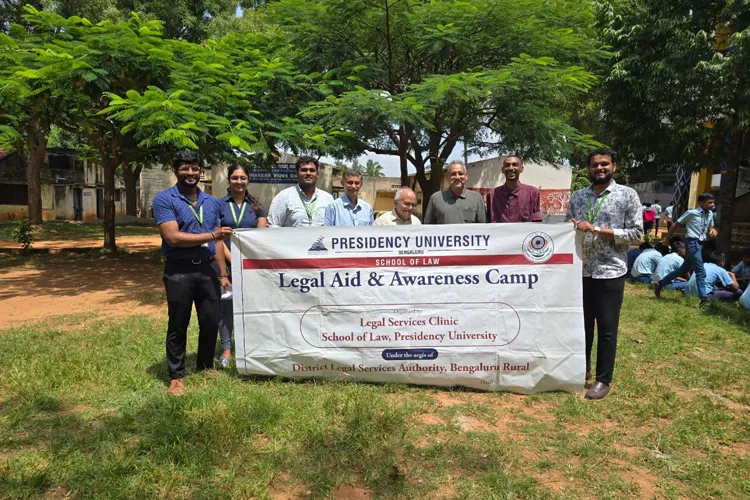THE START OF FREE LEGAL AID IN INDIA

People often think of presidents, revolutionaries, or business owners when they think about world-changers. But what if I told you that one lawyer, with no army, no political support, and no fame, changed the whole legal system of a country?
Advocate Kapila Hingorani is not a household name, yet her impact on access to justice in India is monumental. Her quiet but unwavering fight led to a legal milestone that created the concept of free legal aid and gave voice to the voiceless. It’s a legacy that continues to inspire institutions like the Presidency School of Law (PSOL) at Presidency University, where the commitment to social justice is championed through initiatives like the PSOL Legal Aid Clinic.
- The Case That Shook the Conscience of a Nation:
India was still figuring things out after the Emergency in 1979. The jails were full, the courts were slow, and the concept that poor people could get legal help was more of a fantasy than a reality. The case of Hussainara Khatoon v. State of Bihar began with a horrifying discovery: hundreds of under trial detainees were stuck in Bihar's jails without ever being properly accused. Most of them had been in jail for longer than the maximum sentence for the crimes they were accused of.
Advocate Kapila Hingorani, who had been tracking news stories about these wrongs, filed a Public Interest Litigation (PIL), a term which was practically unknown at the time. In this case she wasn't working for a paid client. She was standing for the justice itself. Hussainara Khatoon, one of the many unseen prisoners, was the name of the case. But it stood for something much bigger: a call for constitutional justice for the people of India who have been forgotten.
- The Supreme Court's Historic Response:
Justice P.N. Bhagwati & Justice D. A. Desai heard the case and were shocked by the cases of such human rights violations. The Supreme Court made a number of important decisions that established the idea that "Speedy trial is a fundamental right" under Article 21 of the Constitution.
It also ordered the immediate release of thousands of detainees who were still awaiting trial.
But more importantly, this decision set the stage for the Right to Free Legal Aid. The court said that the state must give a lawyer to anyone who can't pay for one. This led to Section 304 of the CrPC (Section 341 under the present BNSS) and, later, the Legal Services Authorities Act, 1987. This wasn't only a win in court. It was a win for the entire humanity.
- Who Was Kapila Hingorani?
Often called the "Mother of PILs in India," Kapila Hingorani wasn’t a courtroom celebrity. She was composed, principled, and deeply committed to fairness. Her career was shaped by compassion, courage, and a refusal to ignore injustice. From prisoners to bonded laborers to displaced communities, her PILs carved a new path for Indian jurisprudence.
Today, her legacy lives on in law schools across the country, including the Presidency School of Law, where students are taught that legal education isn’t just about corporate law or litigation—it’s about service. Initiatives like the PSOL Legal Aid Clinic reflect her spirit, empowering law students to provide free legal assistance to those in need and experience law as a tool for transformation.
- What we can learn from her:
In a time of high-pressure placements, corporate packages, and courtroom theatrics, it’s easy to lose sight of why many of us chose to study law. Kapila Hingorani’s story is a powerful reminder: law is not just a profession; it’s a purpose.
She didn’t have fame or influence—just conviction, compassion, and courage. And that was enough to change countless lives.
To every student at Presidency University and beyond wondering if you can make a real difference—the answer is YES. You don’t need power to be strong. You need clarity, consistency, and the courage to care.
So the next time someone asks, "Can lawyers really make a difference?"
You know what to say: "Yes." Just ask Kapila Hingorani.
Written by,
Mr. Sofiul Ahmed, Assistant Professor, PSOL













 Rajanukunte, Yelahanka, Bengaluru, Karnataka, Pin: 560119, India
Rajanukunte, Yelahanka, Bengaluru, Karnataka, Pin: 560119, India
 +91 9022092222
+91 9022092222